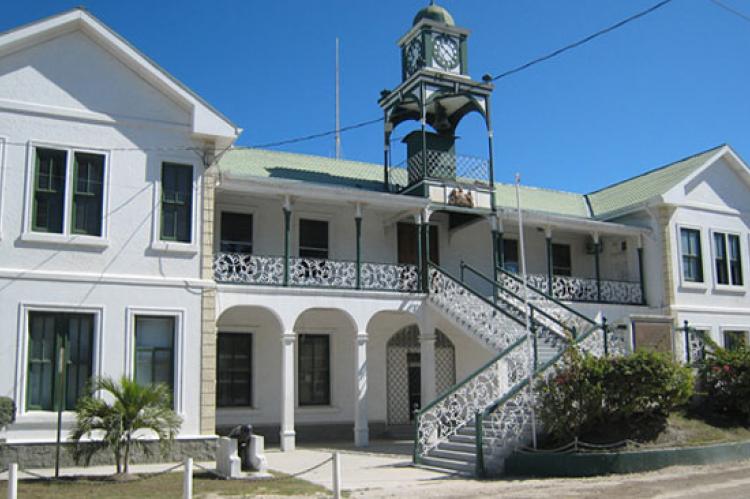Democracy For Sale: How the Briceno Administration Turned the Courts into a Weapon Against the People
By Omar Silva I Editor/Publisher
National Perspective Belize I Digital 2025
Belize City: Wednesday 9th July 2025
🗞️ Feature Article
In 1981, when Belize claimed its independence, the hope was that this young democracy would mature into a society where every citizen’s vote carried equal weight. But nearly 44 years later, that promise lies in ruins. Instead of building a system of fair representation, successive governments—both red and blue—have manipulated and neglected the electoral divisions to entrench power and suppress accountability.
Today, the Briceno administration has proven no different.
The Roots of the Crisis
The Belize Constitution is clear: electoral divisions must be roughly equal in the number of voters so that representation in the National Assembly is fair. Over decades, however, the gap between the smallest and largest constituencies ballooned into a grotesque distortion of democracy. In some divisions, a single vote carries three times the weight it does in others.
This is not theory. The Elections and Boundaries Department’s own records have documented these disparities for years. The constitutional requirement to review and revise the electoral map every five to ten years has been ignored under multiple administrations.
It was this flagrant neglect that finally triggered civil society action.
The Belize Peace Movement Steps In
In 2019, the Belize Peace Movement, a grassroots coalition of concerned citizens, took the unprecedented step of suing the Government of Belize and the Elections and Boundaries Commission to compel redistricting before the general election. The claim was simple: the Constitution mandates equality, and the Government had failed its duty.
In August 2020, the Supreme Court agreed. Justice Michelle Arana ruled that the malapportionment breached constitutional rights. It was a landmark moment: for the first time, a court declared what Belizeans already knew—that our elections were rigged not by overt fraud, but by structural bias.
Yet even this victory came with a caveat. Justice Arana declined to delay the 2020 general election or order immediate redistricting, instead directing the Government to act with urgency. The Government, then led by the United Democratic Party, did nothing before leaving office.
Briceno’s Promise—and Betrayal
When the People’s United Party took power in November 2020, Prime Minister John Briceno pledged to finally correct the imbalance. But that promise soon faded into excuses and delays. Even as fresh voter registration data showed the disparities growing worse, no meaningful redistricting was implemented.
By 2024, with another general election looming, the Peace Movement again sought judicial intervention—hoping the court would compel action the politicians refused to take.
A Chilling Turn in the Supreme Court
Instead of acknowledging the clear constitutional breach, the Briceno administration responded with maximum legal force. It enlisted Hector Guerra—a high-profile attorney of Marine Parade Chambers and a sitting PUP Senator—to defend the Elections and Boundaries Commission.
Guerra’s mission was not to argue the substance of the claim. It was to kill it procedurally. And so, the Government’s lawyers argued that the Peace Movement’s renewed case was an “abuse of process”—an improper attempt to re-litigate an old issue.
Last week, Justice Tawanda Hondora sided with the Government, striking out the case without hearing evidence. The court agreed the claim was procedurally barred, even though the problem itself had never been fixed.
Worse still, the Peace Movement now faces the prospect of paying the Government’s legal costs—punishment for daring to demand the Constitution be followed.
A System Designed to Protect Itself
The outcome is as predictable as it is shameful. Belize’s politicians have perfected a two-step dance:
- Delay reform indefinitely.
- When citizens sue, deploy elite lawyers to suffocate the case on technicalities.
In this latest episode, the Briceno administration showed that it will spend public resources on top-tier legal teams—not to defend democracy, but to bury it.
Why Non-Legal Solutions Are Now Essential
This is why no Belizean should believe that courts alone will save our democracy. When judges prioritize procedural convenience over constitutional principle, and when politicians weaponize the legal system to suppress accountability, only public pressure remains.
Redistricting is not a partisan issue. It is a moral imperative. Until Belizeans organize to demand equitable representation—through civic education, mass mobilization, and sustained advocacy—nothing will change.
The fight for fair voting rights is no longer a legal question. It is a test of our collective will.
A Warning for the Next Election
With no redistricting, the next general election will once again be held on a map that has been unconstitutional for decades. Every candidate elected will take office under a tainted mandate.
And if the public allows it, the politicians and their lawyers will declare victory—not because they were right, but because they were ruthless enough to deny a hearing.
The Question Before Us
Will we accept a democracy where votes are weighed by where you live rather than who you are? Or will we finally confront the cowardice and opportunism that have kept Belize’s electoral map frozen in time?
For too long, the Government of Belize has done as it pleases. This latest ruling proves it again: when power feels threatened, it will spend whatever it takes to protect itself.
But if Belizeans believe democracy is worth more than the legal fees of a few well-connected attorneys, then this is not the end of the story. It is the beginning of a movement.
- Log in to post comments

